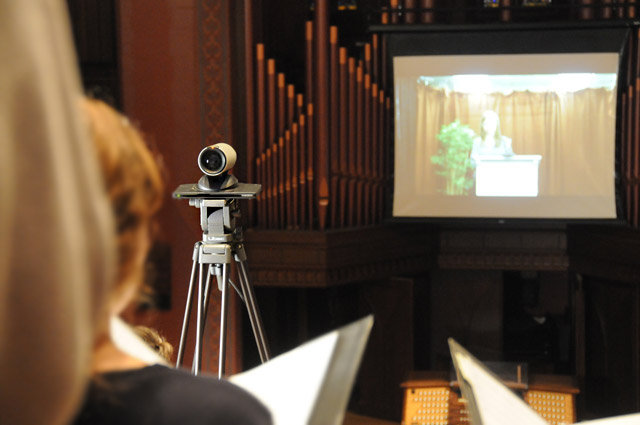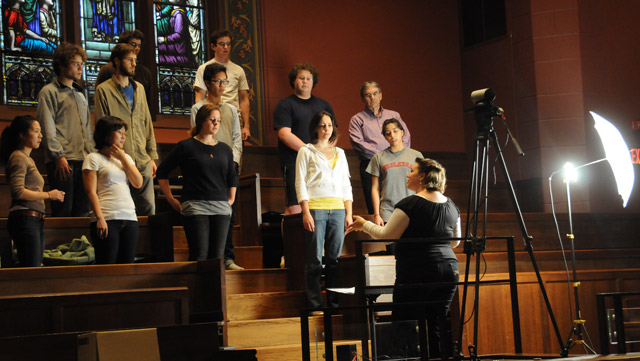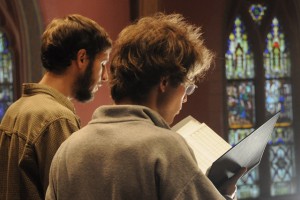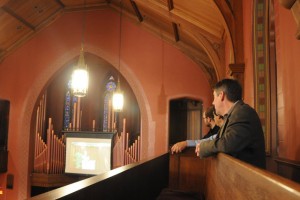Collegium Musicum Course Taught Via Internet2, Videoconferencing


Jane Alden raises her hands and cues members of her Collegium Musicum performance ensemble to intone the music. The sopranos and basses situated in Memorial Chapel’s choir loft allow their voices to resonate throughout the space.
Alden cuts them off at measure 17.
“Measure 17 is the apex because the cantus firmus is in the top voice. You need to sound like angels floating on the top with the chant,” Alden says during a Nov. 23 rehersal . “Let’s try this once more.”
The MUSC438 course, which explores vocal and instrumental repertories of the Medieval, Renaissance, and Baroque periods of European music history, is taught unlike any other choir class, or any other class at Wesleyan for that matter. By using Internet2, a high-speed network alternative to the commercial internet, Alden, associate professor of music, associate professor of medieval studies, is able to direct the choir from 3,300 miles away in London, England at Kings College. This is the first time Wesleyan has used the Internet2 videoconferencing technology in any academic department.

“It’s a good beat behind, but I conduct what I am hearing, not seeing. It is very, very interesting,” Alden says on a video screen projection in the chapel.
Internet 2, which is an advanced networking consortium of universities, industry and government, guarantees a much higher level of bandwidth to it’s members than the commercial Internet. While Wesleyan is not a direct member of Internet2, the university gains access through its state-supported Internet provider Connecticut Education Network.
“Internet 2 provides sufficient bandwidth for real-time simultaneous performance,” explains Dan Schnaidt, academic computing manager for the arts and humanities. “We came close with an approximate one-second delay, a limitation of the videoconferencing gear at Wesleyan and King’s College London. Our challenge going forward is to eliminate the latency and improve the quality to allow full-motion performance with multiple actors. It was exciting to use Internet-2 for the first time, and the event allows ITS to think differently about how we might support performances with remote partners.”

Information Technology Services staff successfully tested the video conferencing set-up on Nov. 17. The choir sings in front of a video camera and microphone, which is broadcast to Alden through her computer. Alden directs the choir from a videoconferencing facility at Kings College, and her video is projected on a screen in Memorial Chapel.
Alden, who has several professional commitments that take her to England, says she found the online experience “very successful. I am now thinking of ways in which I can collaborate with musicians overseas in the future, as part of an international project.”

